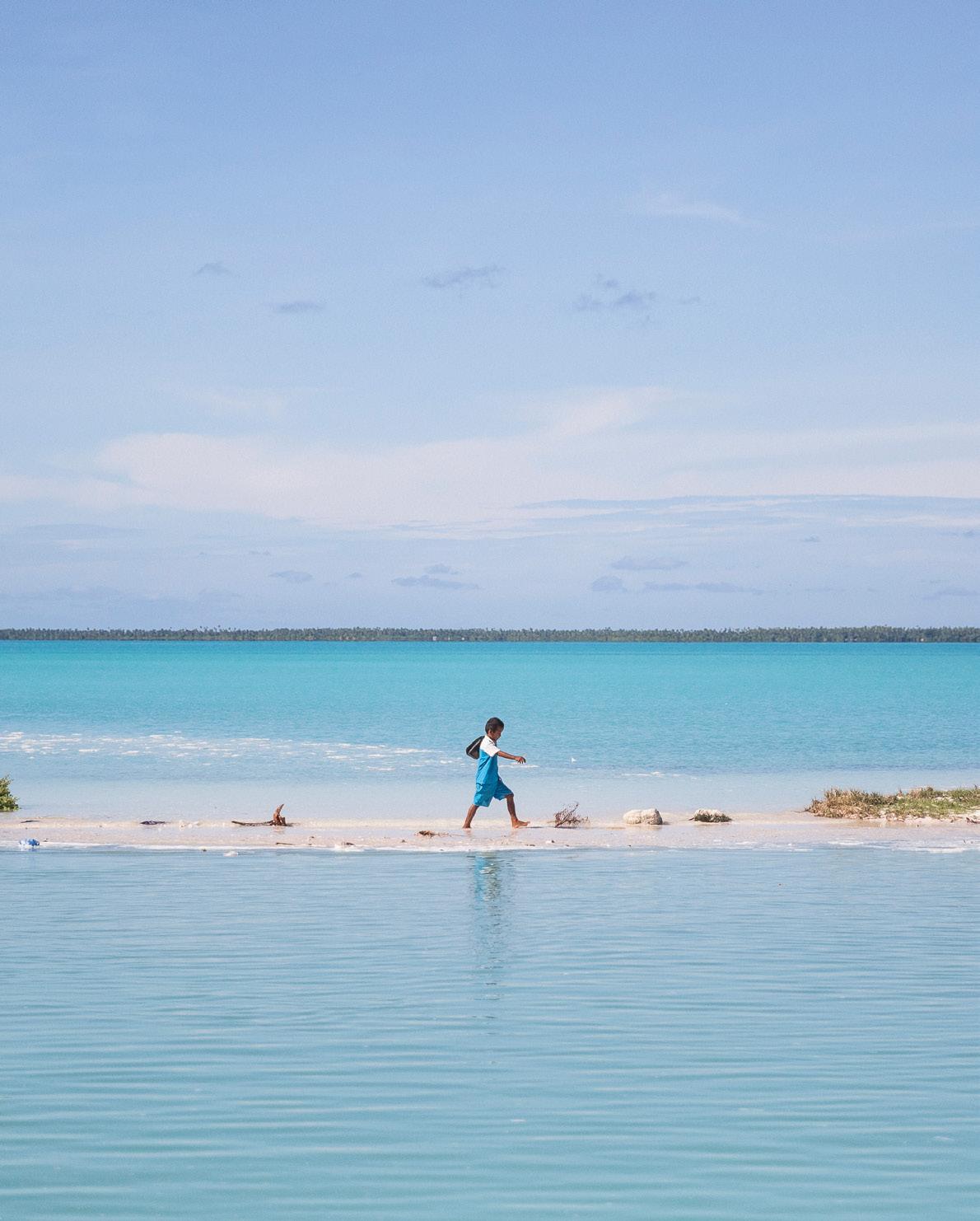
2 minute read
Children’s rights in (climate) change
from "foresee - recognising signs, devising solutions, shaping the future", Annual Report of H-BRS 2022
On the path to social sustainability: climate change from a children’s rights perspective
“In the face of climate change, striving for the sustainable transformation of the economy is not enough. We have to take people with us,” says Kerstin Rosenow-Williams, Professor of Social Sustainability. In her inaugural lecture in the scope of the lecture series “Interjections on Social Policy” 2022, the sociologist emphasised the social and children’s rights perspectives on sustainability.
The goal of social sustainability should be to enable a decent life for everyone. This is often neglected, especially in relation to children’s rights. Young children are at risk worldwide. Their rights are suffering, especially due to climate change and environmental dangers, such as air pollution, water shortages and heat waves. Their voices often go unheard despite being the ones who are most affected by climate change.
Inform, participate, and stand together
After five years as a research officer for studies on children’s rights issues at UNICEF Germany, Kerstin Rosenow-Williams is now lecturing at H-BRS in the degree programmes “Sustainable Social Policy” (B.A.) and “Social Protection” (M.Sc) in the Department of Social Policy and Social Security Studies. She says, “It’s not enough that we know something. We also have to do something. In the end, global challenges and possible solutions won’t come from the government but from society.” The first step, must be to inform yourself, followed by action: reduce emissions, share knowledge on environmental protection, and involve young people in important climate decisions.
The effects of climate change are evident all over the world, though poorer populations are often the ones most affected, as the UNICEF Children’s Climate Risk Index (CCRI) shows. It rates how strongly children are exposed to the consequences of climate change in a country. The results could not be more unjust. The ten countries with the highest risk produce just 0.55% of global emissions. Countries with the highest emissions have a markedly lower CCRI score. Global and social cohesion for sustainability is necessary, according to Kerstin Rosenow-Wil liams. “The main contributors to climate change have a responsibility to implement social sustainability. The attitude of ‘We only look after our own interests’ will not help us. We can only tackle global challenges together.” SustainableSocialPolicy
Virtual entrance
Accessible, modern and user friendly – these goals were set by the Communication and Marketing team for the relaunch of the website. The new H-BRS website has been online since October 2022. “It wasn’t our first relaunch, but it was the most challenging,” says Gabriele Neugebauer, the officer responsible for the redesign. The new website impresses visitors with its colourful design and its many pictures create a feeling of familiarity. The clear structure also makes it easy to navigate. It is definitely worth visiting the new website, which is continually being optimised, even after the relaunch: ȹ www.h-brs.de/en
Children’s uni “World Workshop”
“World Workshop – How do we want to live tomorrow?” From March to June 2022, this question was posed by the Children’s University at H-BRS. For the eighth time, scientists communicated their findings to children from the Rhein-Sieg district. The 60 to 90-minute lectures were aimed at school children from the 3rd to 6th class. The aim: to present current research topics in an easy-to-understand and playful manner. Lecturers from H-BRS and Jülich Research Centre gave talks on renewable energies, how to deal with plastic packaging, and gardening for environmental protection. The Children’s University ended with a graduation ceremony for the mini researchers who had taken part in at least two of the lectures.










